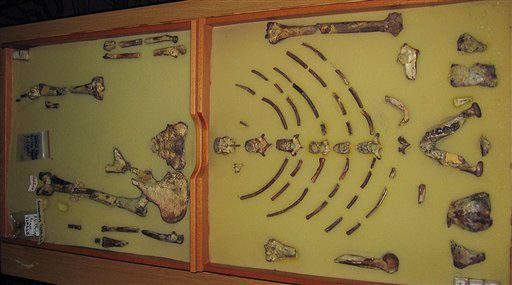
Human Ancestor 'Lucy' Ends US Tour

"Lucy," the famous, 40-percent-complete fossil of one of our human ancestors, returned to Ethiopia this week after a five-year U.S. tour, CBS reported.
The 3.2-million-year-old specimen was discovered by American paleoanthropologist Donald Johanson and his team in the Afar region of Ethiopia in 1974. Lucy, who would have stood barely over 3-and-a-half feet tall, belongs to an extinct cousin of modern humans known as Australopithecus afarensis and is among our earliest known relatives known to walk upright.
Some researchers had worried the trip that took Lucy to 11 U.S. cities starting in 2007 would be too risky for the fragile fossil specimen. But during Lucy's homecoming this week, Ethiopian scientist Zeresenay Alemseged told CBS that he was "confident that she was secured both from the protection point of view and also the security point of view."
Follow Megan Gannon on Twitter and Google+. Follow us @livescience, Facebook & Google+.
Sign up for the Live Science daily newsletter now
Get the world’s most fascinating discoveries delivered straight to your inbox.












